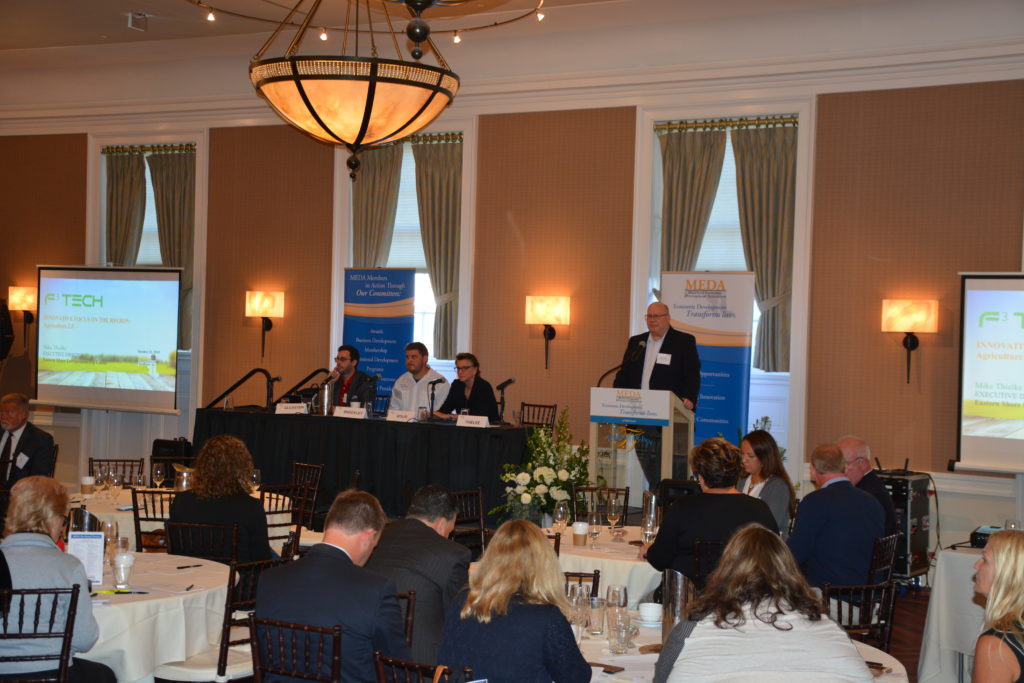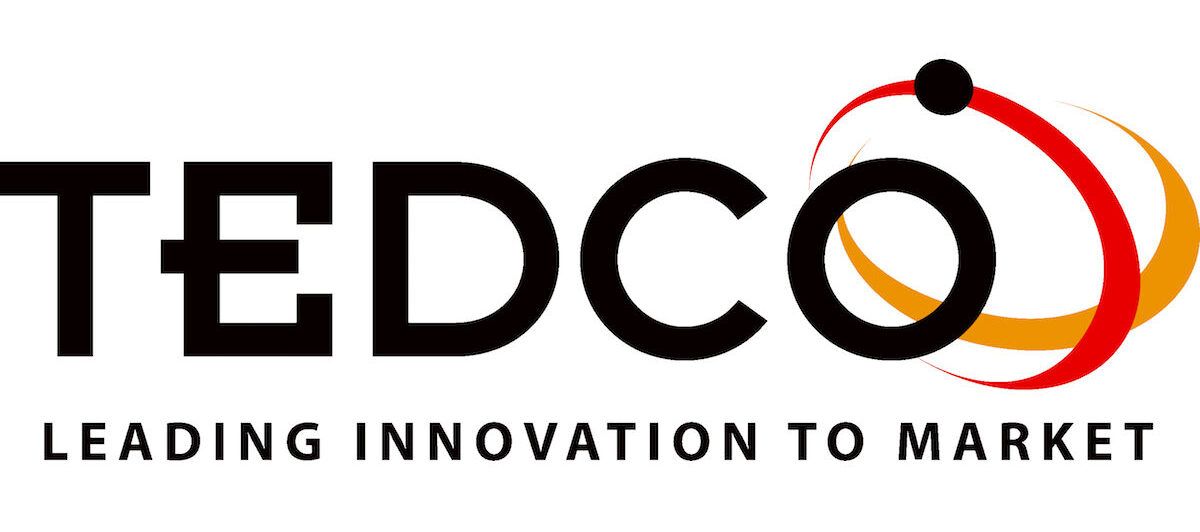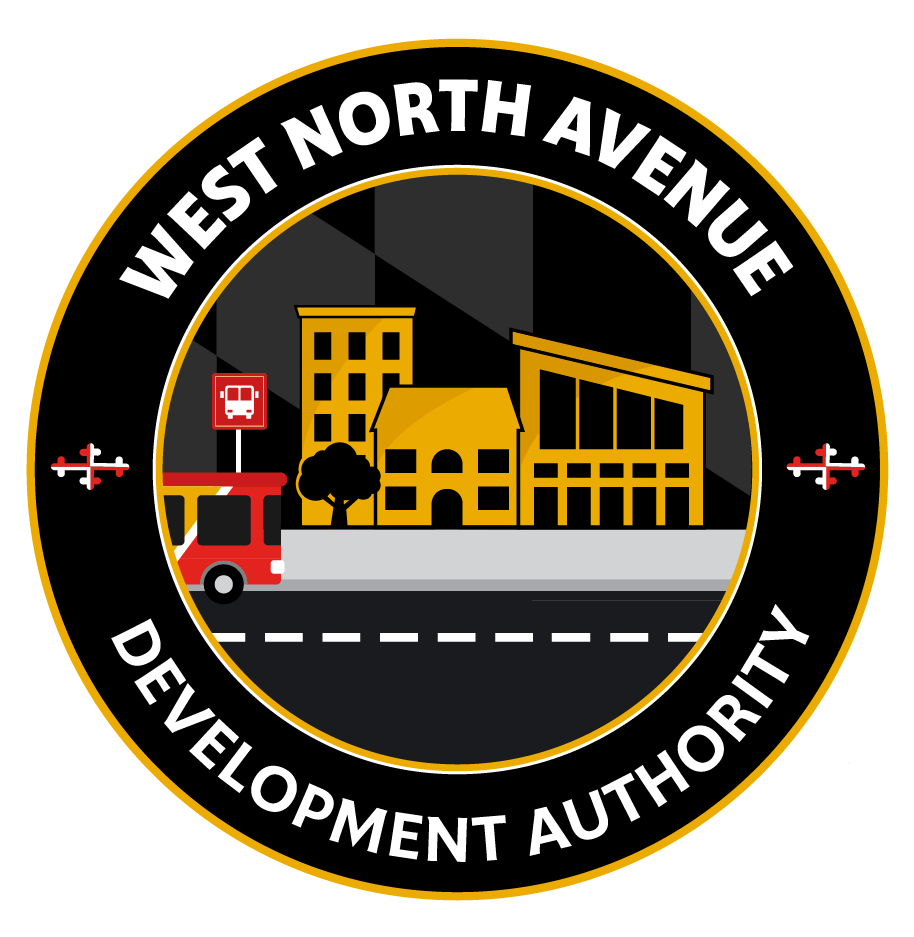“This Ain’t Your Granddaddy’s Ag”—Agriculture 2.0 Panel Discussion at 2019 Fall MEDA Conference
“By 2050, the world will need to grow 70% more food.”
These are the words used by Mike Thielke, Executive Director of the Eastern Shore Entrepreneurship Center, to open the panel discussion on innovation in agriculture at the 2019 Fall MEDA Conference hosted at the Tidewater Inn in Easton, MD. Panelists included Sam Glickstein, CEO of Biotrophics, a company that aims to grow mealworms as an alternative source of aquaculture feed; Roxanne Wolf, Executive Director of Shore Gourmet, a 501(c)6 corporation with a mission of promoting and sustaining value-added agricultural businesses on Maryland’s Eastern Shore; and Jordan Shockley, CEO of Blue Oyster Environmental, an oyster aquaculture company.

Before assuming his duties as panel moderator, Mike Thielke gave a brief presentation on F3 Tech to the 100+ attendees of the conference. Standing for Farm, Fish, Food, F3 Tech is an accelerator program that aims to grow the burgeoning industries of aqua-tech, agri-tech, and enviro-tech to meet the food needs of the world’s growing population in a sustainable way. The program consists of one-day challenge events, pre-accelerator meetings, and a cohort of businesses that go through a rigorous 4-month accelerator program that consists of meetings with industry consultants to commercialize solutions for tomorrow’s problems. Sam Glickstein and Biotrophics were winners of the 2018 F3 Tech Accelerator program; Roxanne Wolf is currently a member of F3 Tech’s 2019 cohort.
When asked what attracted the panelists to the Maryland’s Mid-Shore region, Talbot, Caroline, and Dorchester counties, Jordan kicked things off by talking about how perfect Dorchester County—where his company is based—is for his oyster business in that it has perfect growing conditions and a rich history of waterman heritage. Sam stated how well situated the Mid-Shore is for business attraction and growth in that it is so close to several metro areas. Choosing to locate his business in Talbot County, Sam talked about the regions history of agriculture, its location, and its people as being the perfect combination for his business to be successful.
Mike then asked the panelist to share insight on some of the resistance they’ve faced regarding implementing their visions. Roxanne, who is launching an initiative to convert former chicken houses into growing facilities for nutraceutical herbs, talked about how age can be a big barrier when trying to implement alternative forms of agriculture. “The average age of a farmer here is 60 years old,” she says. In order to legitimize her vision to local farmers, Roxanne stated building partnerships was key. She approached the University of Maryland Extension Office, Caroline County Economic Development, and interested farmers to break down silos and introduce new concepts. Jordan discussed how being mindful of the fact that with industries like oyster aquaculture, there are several generations of families that have been harvesting oysters in a very traditional way. Taking the approach of collaboration is key and reinforcing the need for multiple approaches to bring back the oyster industry here in the region—which used to have several large oyster processing plants.
The panel discussion then transitioned to discussing how the region attracts additional innovative ag businesses. Sam stated the importance of finding an anchor project that could serve as a catalyst to attract new businesses. He went on to explain that what attracted him to Talbot County was a $200 million aquaculture project being developed in Cordova by American Aquaculture Holdings. Sam explained this new company was looking for a more sustainable way to feed the salmon they will be growing and processing. Currently, it takes 3 fish to feed and raise the salmon—clearly not sustainable. By growing insects, Sam’s company, Biotrophics, is a perfect partner for American Aquaculture and that synergy was an important attraction tool. It is then up to the community to welcome the new business and work hard to ensure getting started is easy.
The panel concluded by talking about the future of the agriculture and aquaculture industry. Jordan emphatically stated that it is vital we get the community back into the industry. This is a multipronged approach revolving around exposing kids to the industry at an earlier age and having the community embrace the industry as from a cultural and heritage perspective. When aquaculture was deeply engrained in the fabric of society, the region had a plethora of people working in the industry and processing centers. Roxanne concluded that building collaborative relationships will be critical to the success of the industries. Sam wrapped up the conversation by stating “F3 Tech will help make Maryland a hotspot for agri-tech and aqua-tech.”



